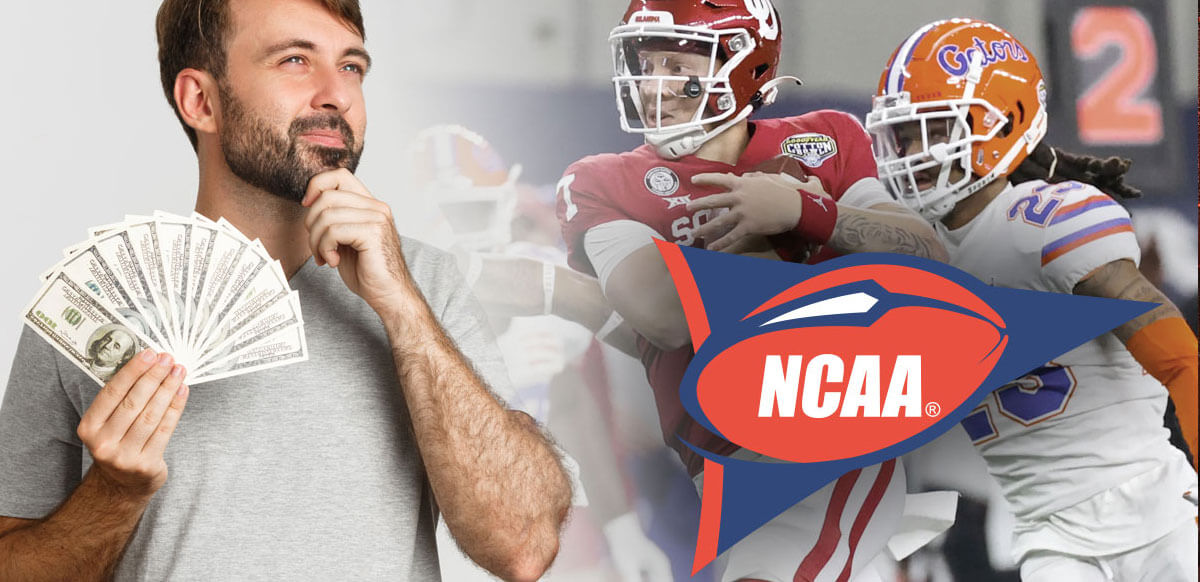
- NCAA President Charlie Baker is encouraging states with legal sports betting to ban prop betting on college sporting events.
- Baker’s comments are in response to a wave of sports betting scandals involving potential match-fixing and players being harassed over prop bets.
- Several states already prohibit prop betting on college sports.
Following a series of investigations into potential match-fixing, NCAA President Charlie Baker wants states to outright ban prop betting on collegiate sporting events. He intends to contact states that offer legal sports betting about prohibiting prop wagering.
According to Baker, a prop betting ban should be implemented for the integrity of the game and to protect student-athletes.
Sports betting issues are on the rise across the country, with prop bets continuing to threaten the integrity of competition and leading to student-athletes and professional athletes getting arrested. The NCAA is drawing the line on sports betting.
So, the issue is two-fold for Baker: He is concerned that the integrity of the game could be degraded due to prop betting and the safety of athletes.
Note that Baker did not ask for sports betting to be banned entirely, his comments apply to prop bets only.
Baker is interested in banishing the segment but understands that spreading the ban to other types of wagers is a step too far. Under his proposal, bettors will not be able to wager on individual players, such total points scored, total rebounds, and similar.
Since players can alter the outcome of their stat line by purposely playing poorly, prop bets are of particular concern. For example, if a player has an over/under of 19.5 points scored, the under prop wins if they score fewer than 20 points.
If a player has money on their own under in the game or tells friends and family to make a specific bet, they can effectively guarantee a winning wager by scoring 19 points or less.
Multiple Teams and Players Under Investigation
As sports betting continues to grow and states legalize it across the country, there is anxiety over players shaving points to ensure a winning wager. Temple and Loyola Maryland are currently under investigation after being flagged for potential match-fixing earlier this season.
U.S. Integrity, a watchdog hired to identify discrepancies in betting markets, noticed suspicious betting patterns in recent Temple and Loyola Maryland games this season. Although anomalies do not guarantee that the games were being fixed, it’s a signal that they should be investigated, and information relayed to the NCAA or league.
Generally, the software will recognize bets that are receiving an unusual amount of money on one side. If big wagers are made on one side out of the norm and the odds are impacted significantly, this can be a red flag. Fixing an entire game is much more difficult than one player’s prop bets, however.
In the case of the NBA’s Jontay Porter, he was flagged for possibly betting on himself in Toronto Raptors games. The report suggests that Porter took himself out of games to ensure he didn’t record too many points, rebounds, assists, or three pointers. He was reportedly doing this as early as March 20 in a game against the Sacramento Kings.
Players Receiving Death Threats Over Prop Bets
The second goal of Baker is to limit threats and harassment levied toward student-athletes. Since sports betting has been legalized, athletes have reported a surge in threats from bettors on social media.
In 2019, sports bettor Benjamin Patz sent threatening messages to a Pepperdine basketball player via a private message on social media:
Your throat will be severed open with a dull knife. Your entire family will be beheaded and burned alive
On March 7, 2023, roughly 125 collegiate sports officials, gambling regulators, and sportsbook representatives met to discuss methods to combat harassment targeting student-athletes.
There are select states that have banned prop betting for this reason. For example, the Ohio Casino Control Commission (OCCC) does not allow sportsbook operators to offer prop bets on collegiate sporting events.
Other states that do not have college prop betting odds include Maryland, Massachusetts, and Pennsylvania. Arizona, Colorado, and Indiana have limitations on college sports prop betting, but it is not completely restricted in these states.
On the bright side, most offshore betting sites that accept Americans have no intention of banning prop bets on college sports. Sites like Bovada even have prop builders, allowing you to create custom wagers from scratch.




You must be logged in to comment. Don't have an account? Sign up today.